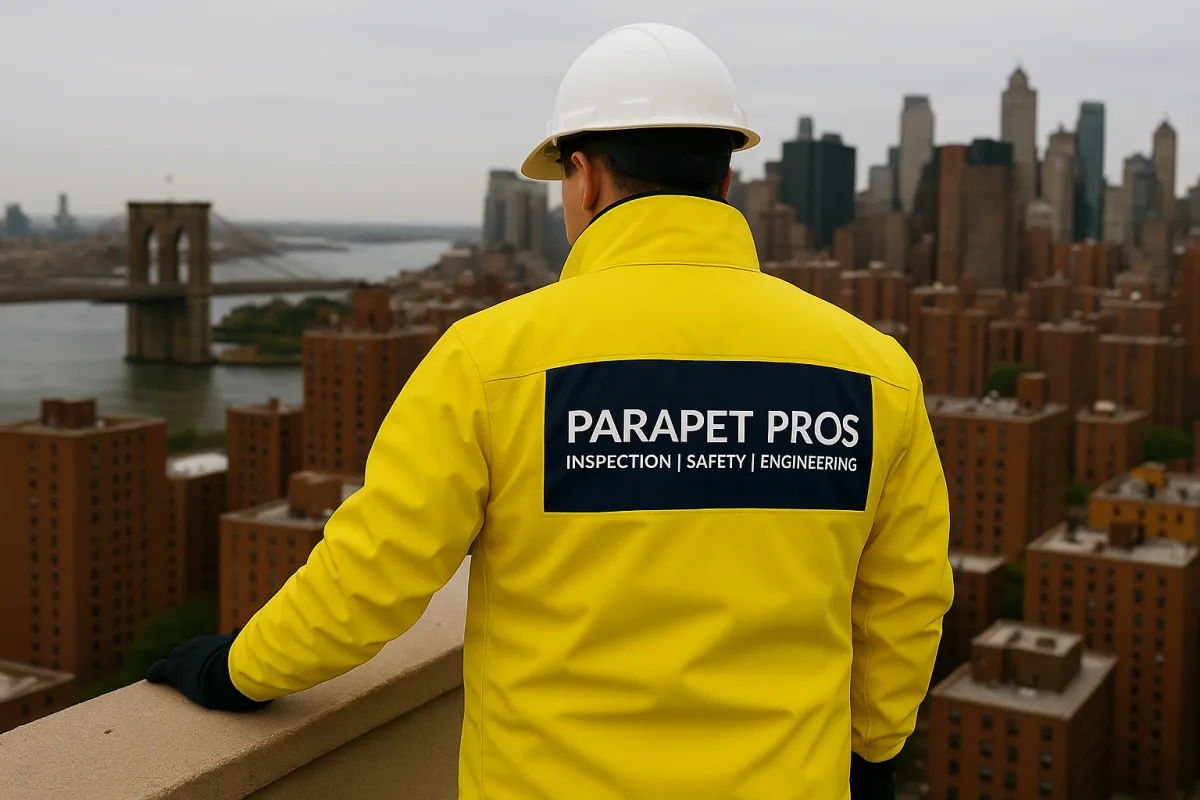
Why Property Owners Should Choose Professional Parapet Inspection Services Over Independent Inspectors
Parapet walls, the protective barriers that extend above the roofline of buildings, are essential architectural features in urban structures, particularly in New York City. While they add aesthetic value and serve safety functions, they also face constant exposure to the elements, making them vulnerable to deterioration over time. As parapet inspections are now mandatory under New York City’s Local Law 126, property owners must understand the critical importance of hiring a professional inspection service rather than relying on unaffiliated individuals.
This blog explains why choosing a licensed, reputable inspection company is a smarter, safer, and more compliant decision for building owners.
Compliance with Local Law 126
Local Law 126 requires routine parapet inspections for buildings above six stories, with a focus on identifying defects that may lead to unsafe conditions. Only a qualified professional—typically a licensed architect or structural engineer—can assess the structural integrity of parapet walls in accordance with NYC Department of Buildings (DOB) standards.
Professional inspection firms:
Stay current with the latest DOB filing requirements
Use standardized processes and certified personnel
Provide compliant documentation to avoid costly violations
Independent inspectors may lack administrative support and technical infrastructure to meet all filing and compliance demands.
Consistency and Quality Assurance
Hiring a professional service ensures quality control across all stages of the inspection. Inspection companies often have:
Internal review systems for accurate reporting
Specialized staff for different types of building issues
Established protocols that reduce human error
In contrast, an independent inspector might offer limited oversight, fewer resources, and no backup if issues arise post-inspection.
Comprehensive Risk Assessment and Repair Planning
Companies offering parapet inspection services don’t just identify issues—they provide integrated recommendations for repair and long-term maintenance. Their reports are often more detailed, with actionable insights, such as:
Severity rankings of structural defects
Prioritization of repair work
Budget estimates for restoration
This level of strategic assessment helps owners plan more effectively and reduce the likelihood of emergency repairs.
Access to Liability Coverage and Professional Indemnity
Reputable inspection companies carry liability insurance and professional indemnity, which protects both the inspector and the client in case of unforeseen errors or oversights. This provides property owners with peace of mind, knowing that they are legally and financially protected.
An independent inspector without insurance could expose the owner to liability risks if something goes wrong after the inspection.
Greater Accountability and Post-Inspection Support
Professional firms often offer:
Follow-up support for DOB inquiries
Assistance during violation disputes
Clarifications and updates based on revised city codes
This continued support is rarely available when working with solo practitioners. With a professional firm, the relationship extends beyond a one-time visit—it becomes a partnership in building safety.
Choosing a licensed professional company for parapet inspections is not only about meeting regulatory standards—it’s about making a long-term investment in your building’s safety, structural health, and legal compliance.
While an independent inspector may seem cost-effective, the risks of limited expertise, inconsistent quality, and lack of post-inspection support can far outweigh the savings. Professional firms bring reliability, accountability, and comprehensive service to every inspection.
If you manage or own a building in NYC, partner with a trusted inspection company to ensure your parapet walls are evaluated thoroughly, reported accurately, and maintained responsibly. A qualified team can make the difference between safe compliance and costly negligence.